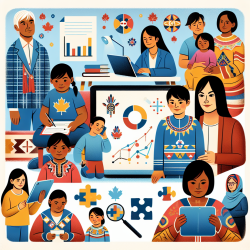As a practitioner working with diverse populations, understanding the unique challenges faced by trans and non-binary (TNB) immigrants, refugees, and newcomers (IRN) is crucial. These individuals often encounter intersecting barriers to accessing primary healthcare in Canada. A recent study titled "Factors associated with primary healthcare provider access among trans and non-binary immigrants, refugees, and newcomers in Canada" sheds light on this issue. By implementing the research outcomes or delving deeper into this topic, practitioners can significantly enhance their skills and provide better support to this vulnerable population.
The Unique Challenges Faced by TNB IRN
TNB IRN face multiple layers of discrimination and barriers that impact their access to healthcare. These include:
- Stigma and Persecution: Many TNB IRN have faced stigma and persecution in their countries of origin, which can continue in their new environment.
- Resettlement Stressors: The process of resettling in Canada presents additional stressors such as language barriers, socioeconomic difficulties, and discrimination.
- Lack of Cultural Competence: Healthcare providers may lack the cultural competence needed to address the specific needs of TNB individuals effectively.
Key Findings from the Study
The study revealed several factors associated with having a primary healthcare provider among TNB IRN:
- Citizenship Status: Non-permanent residents were less likely to have a primary healthcare provider compared to Canadian citizens or permanent residents.
- Region of Origin: Individuals from Northern or Sub-Saharan Africa, Eastern Europe, and Oceania were less likely to have a primary healthcare provider.
- Current Location in Canada: Those living in Quebec or the Prairie provinces faced greater challenges in accessing primary healthcare.
Practical Steps for Practitioners
The findings highlight areas where practitioners can focus their efforts to improve access to healthcare for TNB IRN:
- Cultural Competence Training: Engage in training that enhances understanding of cultural nuances and the specific needs of TNB individuals.
- Create Inclusive Environments: Foster an inclusive environment within healthcare settings that respects diverse identities and experiences.
- Liaise with Community Organizations: Collaborate with LGBTQ+ organizations and settlement agencies to connect TNB IRN with competent healthcare providers.
The Role of Further Research
This study underscores the need for ongoing research into the healthcare experiences of TNB IRN. Practitioners are encouraged to engage with current literature, participate in studies, or even initiate community-based research projects. This will not only enhance their practice but also contribute to systemic changes that improve healthcare access for marginalized groups.
If you are interested in exploring this topic further, you can read the original research paper by following this link: Factors associated with primary healthcare provider access among trans and non-binary immigrants, refugees, and newcomers in Canada.










